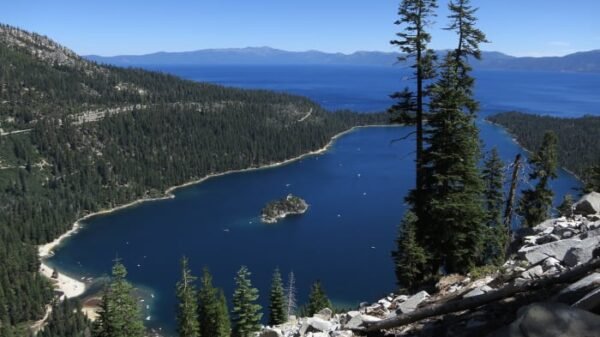Tragic End for a Stranded Whale Near Marco Island
The Discovery
Beaches along Florida’s Gulf Coast are known for their tranquil waters and stunning sunsets. However, the sight that greeted visitors to Tigertail Beach on Marco Island on Monday morning was anything but calming. A 12-foot-long whale had washed up onshore. Officials were immediately alerted, and a team was dispatched to investigate the situation. The whale, later identified as a young, male Pygmy Sperm Whale, was stranded in shallow waters, struggling for its life.
Rescue Efforts
Rescue workers from Rookery Bay Reserve, Florida Fish and Wildlife Conservation Commission (FWC), and the Marco Island Police Department collaborated for hours to try to save the whale. They created a channel by digging a trench to help the whale swim back into deeper waters. The rescuers hoped that high tide might assist the mammal, which appeared weak and disoriented. The team also administered fluids and medication. However, despite their efforts, the whale could not be saved as it repeatedly beached itself. The rescuers decided to euthanize the whale to end its suffering.
Pygmy Sperm Whales
Pygmy Sperm Whales are the smallest of the toothed whales, measuring less than 12 feet long. They are usually found in deep, warm waters, including the Gulf of Mexico. These whales have a squid-heavy diet and have unique, squared heads that set them apart from other whales. Despite their name, they are not closely related to sperm whales.
Reasons for Stranding
Stranding is not unusual for whales and dolphins and can happen for numerous reasons. The most common include disease, parasites, malnutrition, injury, navigation errors, noise pollution, and being caught in fishing gear. Once stranded, the animal faces physical challenges like dehydration, overheating, and predation. Stranding can also result in emotional suffering for the animal as they are social and intelligent creatures. The reasons behind this particular Pygmy Sperm Whale stranding are unknown.
Whale Necropsy
Once the whale was euthanized, a necropsy was performed to determine the cause of death and gather data for research. The necropsy was conducted on-site, and the body was later taken to the FWC Fish and Wildlife Research Institute for further studies. Dr. Jamie DePasquale, FWC veterinarian, and marine mammal research investigator performed the procedure. The necropsy included collecting skin, muscle, blubber, and tissue samples. According to the FWC, the necropsy results could take a few months to analyze.
Impact on the Marine Ecosystem
Every marine mammal plays an essential role in the ocean’s complex ecosystem, and the loss of any one animal can have far-reaching consequences. Pygmy Sperm Whales, like other toothed whales, impact the ocean’s food chain by consuming squid and other deep-sea creatures, preventing overpopulation of these smaller organisms and providing food for other marine life. Moreover, their carcasses, like those of some other large animals, create microenvironments that support other creatures. By studying these ecosystems, researchers may find ways to preserve marine life and learn more about how different species impact each other.
Conclusion
The stranding of a whale near Marco Island was a tragic event, but it gave researchers an opportunity to study this elusive species. From a single stranding, valuable information can be gathered, such as habitat and feeding habits, migration patterns, and health assessments. Although the loss of the Pygmy Sperm Whale is heartbreaking, conservation efforts can be derived from this unfortunate event. We must continue to protect our planet and the creatures that inhabit it to preserve the delicate balance of our ecosystems.




































